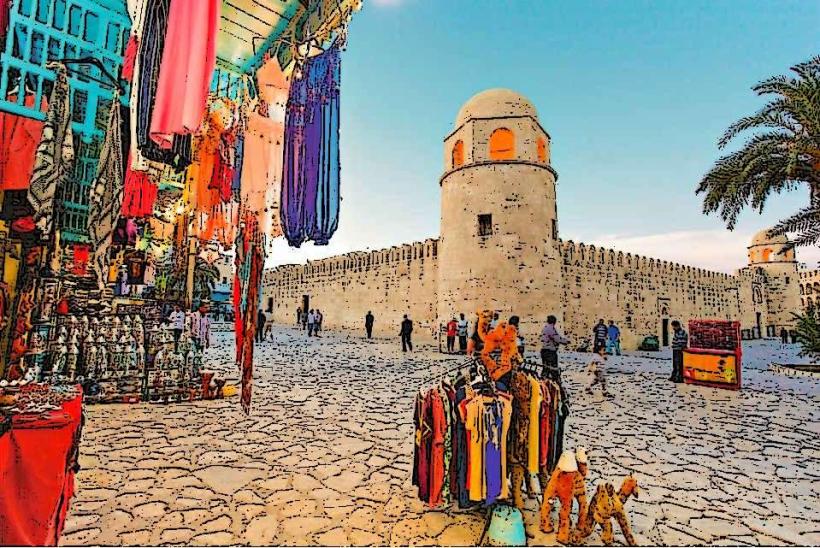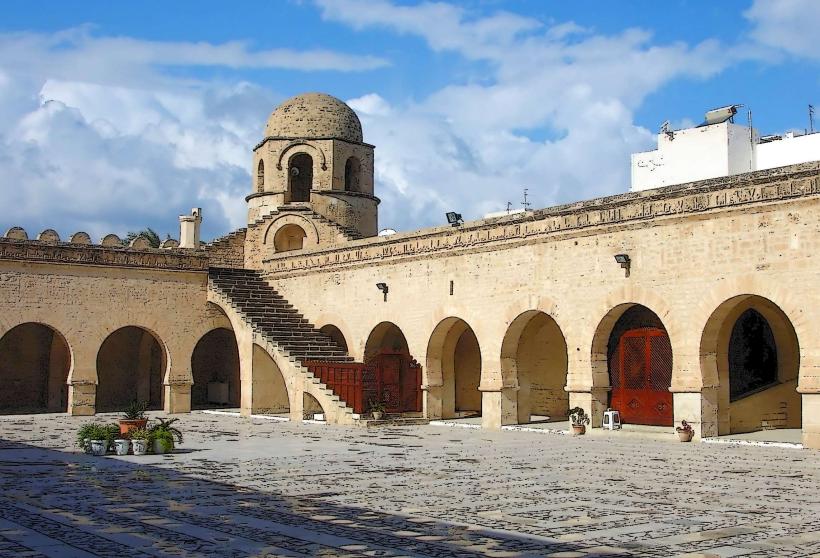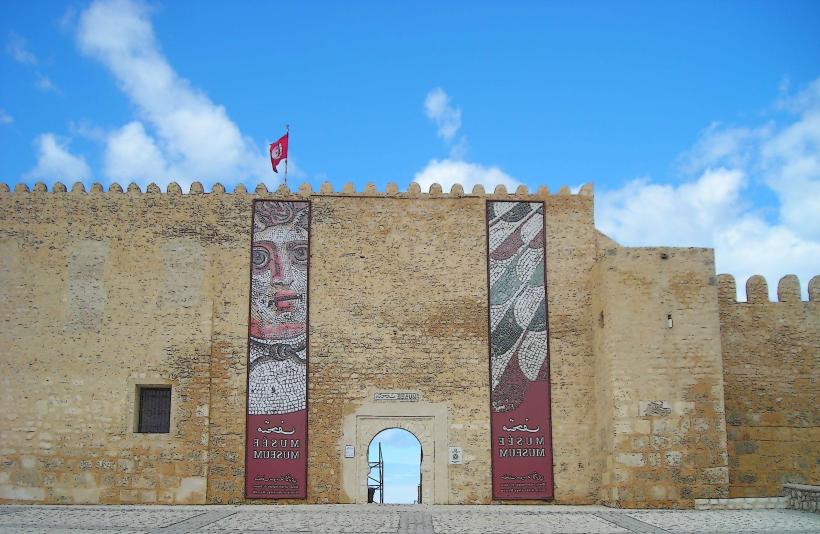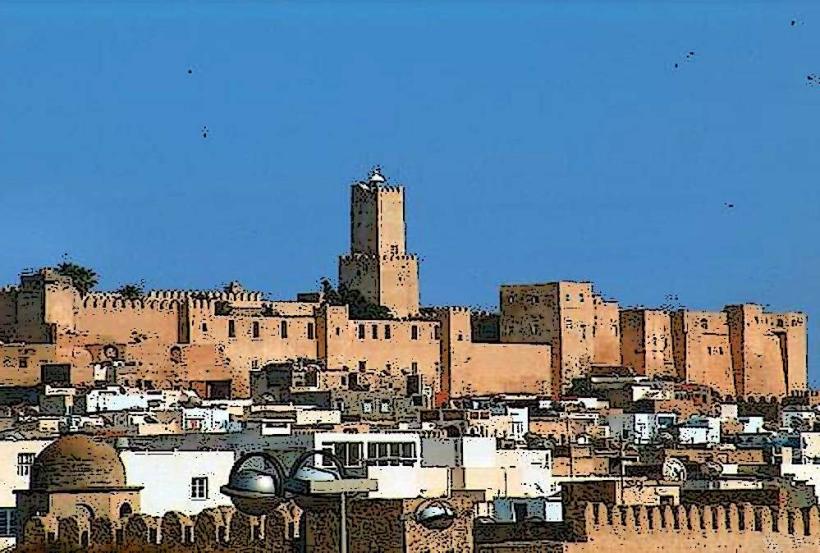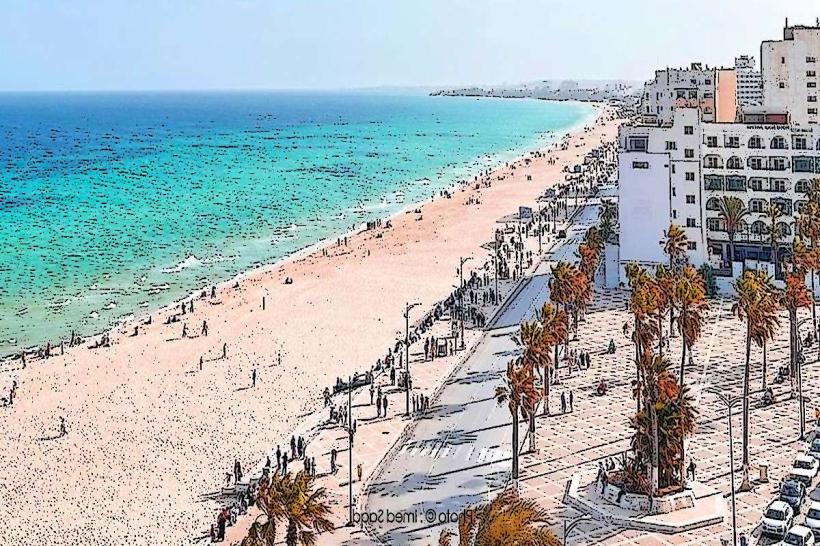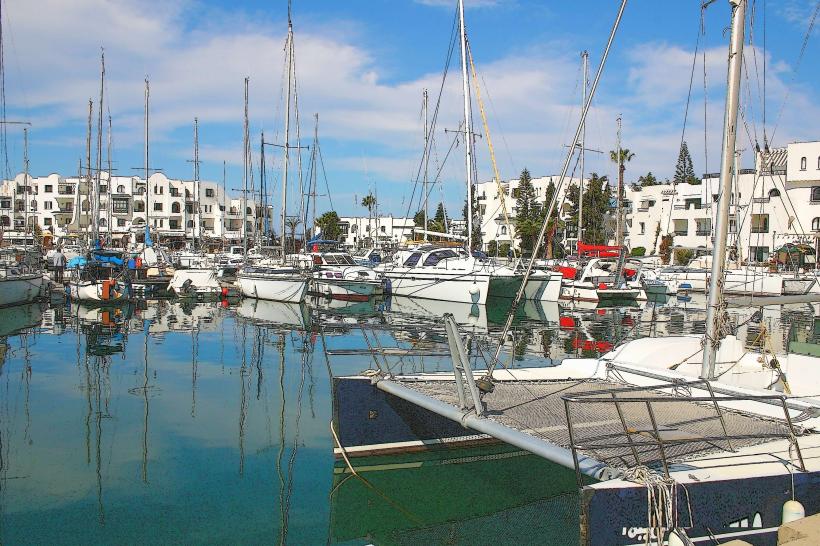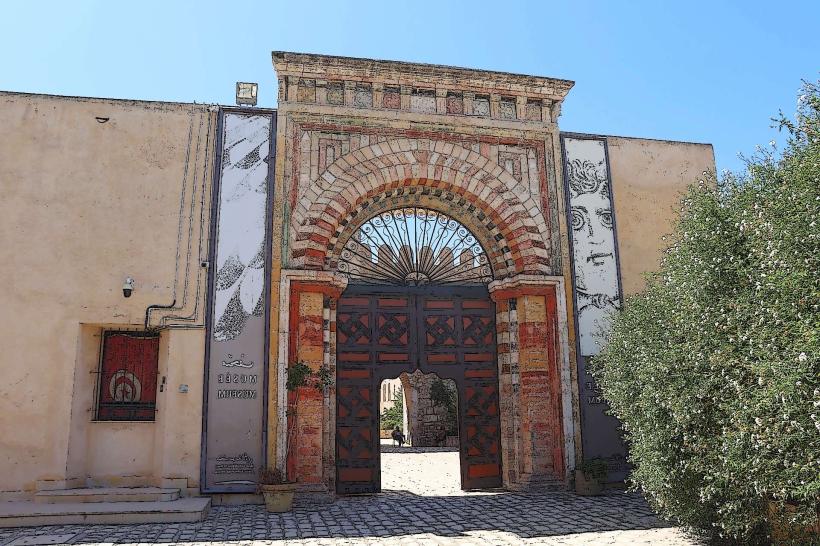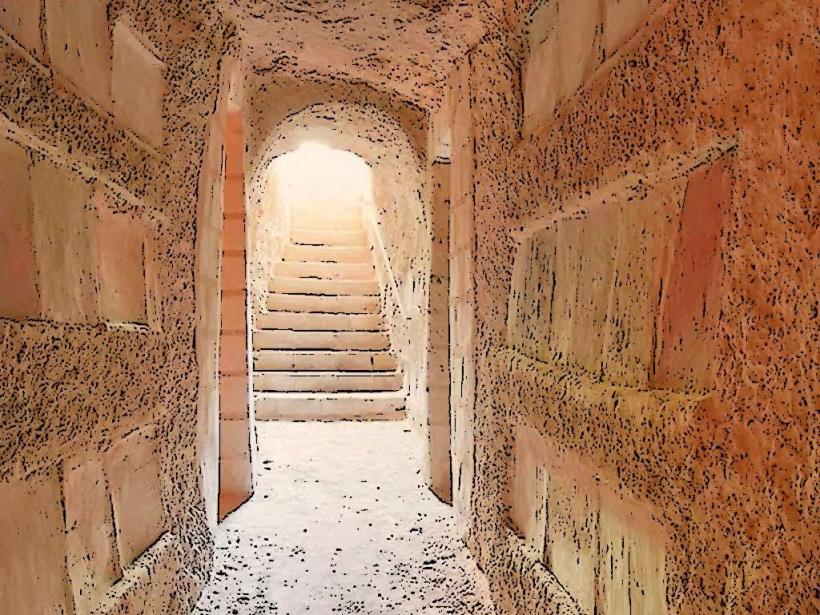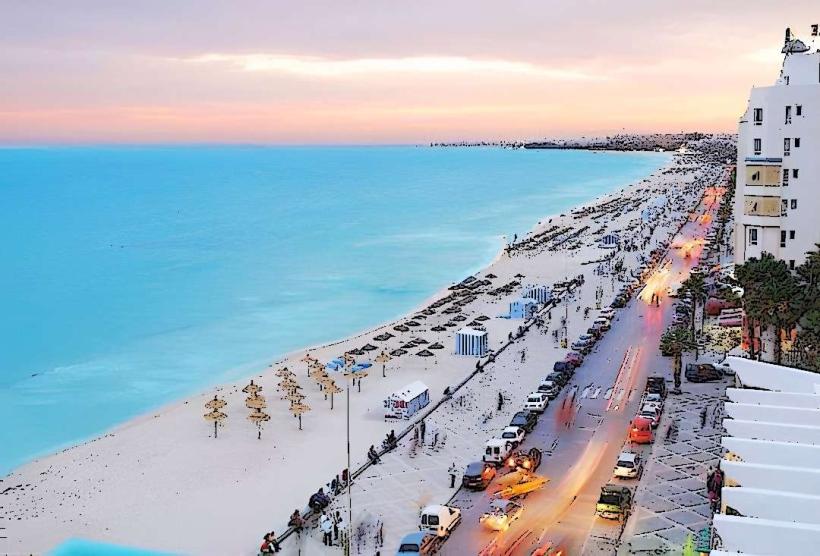Information
Landmark: Ribat of SousseCity: Sousse
Country: Tunisia
Continent: Africa
Ribat of Sousse, Sousse, Tunisia, Africa
The Ribat of Sousse is one of Tunisia's most significant historical landmarks and a prime example of early Islamic architecture. Located in the heart of the Medina of Sousse, this fortress stands as a symbol of the city’s rich history and its role in the defense of North Africa. Here’s a detailed look at the Ribat of Sousse:
Historical Significance
Built in the 8th Century: The Ribat of Sousse was constructed in 8th century, during the Aghlabid dynasty, and served as both a defensive fortress and a religious institution. Its primary purpose was to protect the coastal city of Sousse from invaders, particularly pirates and other military threats from the sea.
Islamic Architecture: The Ribat is a fine example of Islamic military architecture. It was designed as a fortress with a combination of defensive structures and religious elements, typical of many ribats (fortified monasteries) built in Tunisia during this period.
Strategic Importance: The Ribat of Sousse was one of a series of forts built along the Mediterranean coast to protect the region from external threats, including the Berbers and later the Crusaders. It also played a role in helping to secure the expansion of Islam in North Africa.
Architecture and Layout
Fortified Structure: The Ribat consists of high, thick walls designed to withstand enemy attacks. The outer walls of the fortress are reinforced with defensive features, including towers and battlements, which allowed defenders to launch attacks against intruders.
The Central Tower: One of the most striking features of the Ribat is its central tower, or minaret, which rises above the Medina. The tower was used both as a lookout point and a place for religious prayers. Visitors can climb to the top of the tower, where they are rewarded with panoramic views of the surrounding city, the Mediterranean coast, and the surrounding landscape.
Interior Courtyard: Inside the fortress, there is a spacious courtyard that would have been used for various activities, including military training and religious gatherings. The courtyard is surrounded by a series of chambers and rooms that were used by the soldiers and religious leaders (known as "mujahideen") who lived there.
Mosque and Prayer Hall: A mosque is situated inside the Ribat, reflecting its dual function as both a military fortification and a place for religious worship. The mosque has a simple yet beautiful design, with an emphasis on light and space, characteristic of early Islamic architecture.
The Role of the Ribat
Defense Against Pirates: The primary function of the Ribat was to protect the city and the Mediterranean coastline from pirates and foreign invaders. It was manned by a group of warriors, known as mujahideen, who were responsible for defending the region and spreading Islam through military action if necessary.
Religious Importance: The Ribat also had a religious function, as it served as a center for Islamic studies and prayers. Many religious scholars and devout Muslims chose to live in the Ribat, and it became an important part of the religious landscape of Tunisia.
Cultural and Educational Center: Over time, the Ribat of Sousse became a place of learning and culture, attracting scholars from different parts of the Muslim world. It was a hub for the spread of Islamic teachings and knowledge.
Museum and Exhibits
Today, the Ribat of Sousse serves as a museum that showcases a variety of artifacts related to the history and culture of the region:
Archaeological Exhibits: The museum displays a range of objects from Tunisia’s Islamic past, including pottery, coins, and weapons. These items provide insight into the daily life of the people who lived in and around the Ribat.
Islamic Art: The museum also features examples of Islamic art, including beautiful calligraphy, ceramics, and textiles. These works highlight the artistic achievements of the Aghlabid dynasty and other periods of Islamic rule in Tunisia.
Architectural Models: The museum displays models and diagrams of the Ribat’s architectural features, helping visitors to better understand its design and defensive purpose.
Visitor Experience
Climbing the Tower: One of the highlights of visiting the Ribat of Sousse is the opportunity to climb the tower. From the top, you get sweeping views of the Medina, the port of Sousse, and the Mediterranean Sea. This panoramic view provides a unique perspective on the city’s historical development and strategic importance.
Guided Tours: Visitors can explore the Ribat on their own or take a guided tour. A guide can offer in-depth knowledge about the history, architecture, and significance of the Ribat, enriching the overall experience.
Surroundings and Location
Located in the Medina of Sousse: The Ribat is situated within the Medina of Sousse, one of Tunisia’s most well-preserved historic districts. This area is home to narrow streets, traditional markets (souks), and other historic buildings, making it a perfect place to explore after visiting the Ribat.
Close to Other Attractions: The Ribat is near several other cultural and historical attractions, such as the Sousse Archaeological Museum, which is located within the Kasbah (fortified area) and offers additional insights into Tunisia’s past.
Conclusion
The Ribat of Sousse is a must-visit destination for anyone interested in the history, architecture, and culture of Tunisia. As both a military fortress and a religious center, it offers a fascinating glimpse into the past, revealing the important role this site played in the defense of the region and the spread of Islam. With its stunning architecture, panoramic views, and informative exhibits, the Ribat remains a symbol of Tunisia’s rich heritage and a reminder of the country's Islamic and military history.

